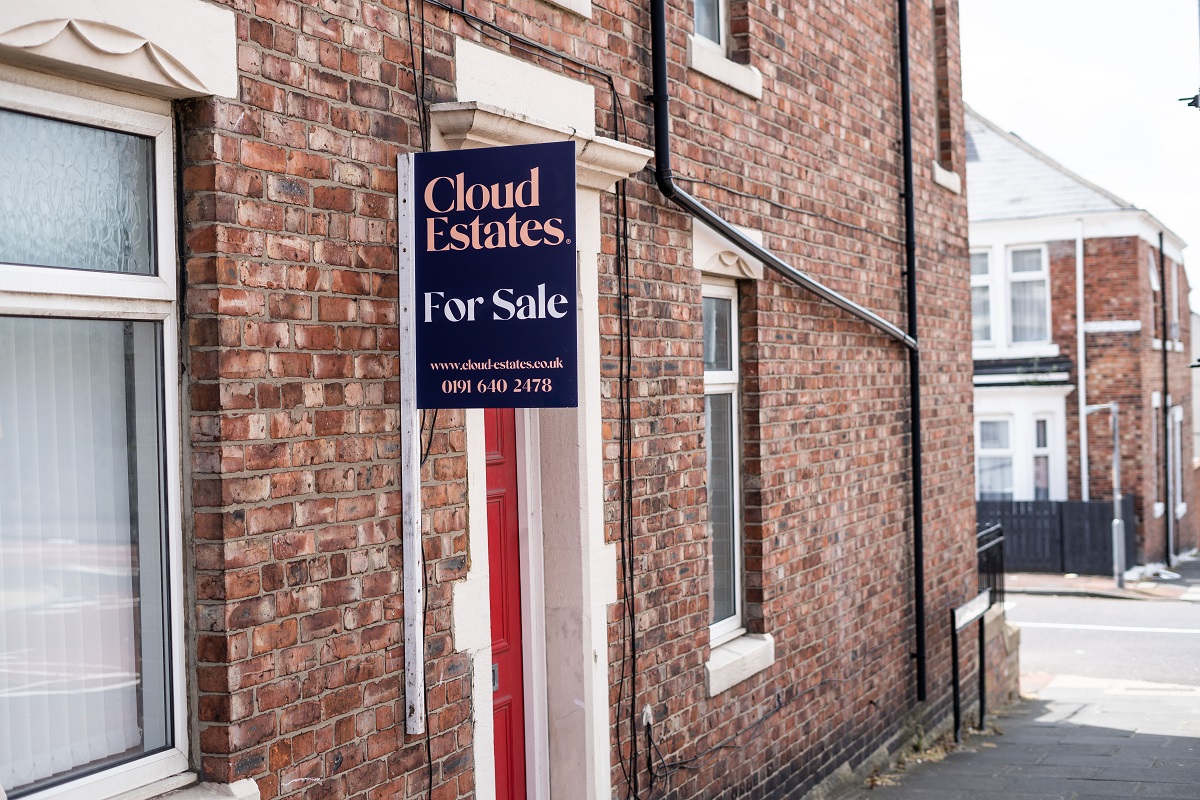Blog
- Details
- Hits: 39
The legal aspects of buying and selling a house may seem complicated, but Cloud Estates can help to guide you through the conveyancing process
Given the complexity of buying and selling property, it’s perhaps inevitable that a certain amount of industry jargon creeps into conversations between agents and our customers. At Cloud Estates, we try to keep things as simple as possible for our clients, but you’ll still hear us referring to concepts like the conveyancing process.
The conveyancing process describes the legal steps required to transfer ownership of a property from the seller to the buyer. It generally takes three to four months, or slightly longer when purchasing a leasehold property, which requires additional checks and documentation. Sellers also have to do some conveyancing, but we’ve focused below on the process of buying a property – the more complex and time-consuming side of the transaction. This is what a conveyancing expert will do for you…
- Examine documents.
Once you appoint someone to handle conveyancing, they’ll examine various legal documents and raise any queries which arise with the selling party’s solicitor. This happens behind the scenes and can take a while. That’s frustrating if you’re keen to complete quickly, but it’s necessary to ensure there are no nasty surprises, such as compulsory factoring charges.
- Arrange a survey.
Mortgage lenders rarely approve loans on properties without a survey. In England, it’s up to the buyers to choose how detailed they’d like their survey to be. There are five tiers, but a Level 2 RICS Home Survey or RPSA Home Condition Survey should be comprehensive enough for most property transactions.
- Conduct property searches.
This is another behind-the-scenes stage, where your solicitor conducts detailed legal checks to ensure the property you’re buying isn’t likely to give you any undue trouble. They’ll explore areas like flood risk, historic ownership and local council planning schemes. The cost of conducting these searches should be clearly stated up front, as part of the total conveyancing fee.
- Conduct a valuation.
Unless you’re a cash buyer, the conveyancing process will require a mortgage valuation on the property. A more complex version of the valuations Cloud Estates undertakes, this ensures any lender will have enough equity to underwrite a loan. Buildings insurance for the estimated value of the property also needs to be arranged, though you don’t need contents insurance yet.
- Sign-off.
Once your solicitor’s questions have been answered, they’ll ask if you still want to go ahead with the purchase. Reasons for pulling out might include a survey identifying structural issues, or the mortgage lender undervaluing the property. If you’re happy to go ahead, set a completion date and arrange to pay a non-refundable deposit (usually ten per cent of the property’s value).
Finally, it’s the day when you and the seller exchange contracts – through your solicitors, of course. This happens at a set date and time but might be reliant on other people in a property chain exchanging first. As soon as contracts are exchanged, you’re legally obliged to buy the property, while the seller can’t withdraw from the market or demand a higher price.
Also known as ‘moving day’ in many cases, this is the mutually agreed date when you transfer the balance of payment to the seller’s solicitors. In return, they release the keys for your home. It generally happens around midday on a Friday. Afterwards, there’ll be a few loose ends to tie up, such as your name being recorded as the property’s new legal owner at the Land Registry.
Whether you’re selling or buying, Cloud Estates is here to support and guide you through the conveyancing process. Get in touch with us for more information on how we can simplify the process of selling and buying property in Newcastle and across the north-east.
- Details
- Hits: 1691
Ten tips for showing viewers around your house

If you’re handling your own viewings, it’s imperative to optimise the process of showing viewers around your house.
Showing viewers around your house can feel intimidating. At Cloud Estates, we simplify property marketing by vetting enquiries to ensure anyone who arrives at your front door is a motivated and viable purchaser. However, if you’re handling your own viewings (as most homeowners do), it’s crucial to represent your property in its best light, including maximising its presentation.
Even if you’re not confident chatting to strangers, or blessed with a silver tongue, these ten tips for showing viewers around your house are worth committing to memory…
- Rehearse your introduction. You can’t script an entire property tour, but a confident start puts everyone at ease. Practice a few icebreaker opening lines like “thanks for coming – I’ll be your tour guide today” until you find yourself saying them confidently.
- Neutralise aromas. While your home’s for sale, avoid cooking pungent foods like fish. Maximise fresh air, light a candle downstairs and banish smelly shoes into cupboard. If possible, remove pets from the property ahead of scheduled viewings.
- Start and finish in the strongest space. First impressions count, while the last thing people see lingers in their memory. Bookend viewings with your property’s best attribute – a large family kitchen, a suntrap garden or a well-presented period hallway.
- Highlight hidden features. Don’t just walk into the bathroom and say, “here’s the bathroom”. Add context and insider info – which rooms get the afternoon sun, any recent refurbishments or key specifications, and features regular visitors appreciate/comment on.
- Let people walk ahead of you. Walking around with your back to viewers feels unfriendly. They’ll struggle to hear you, and you can’t control when they move on to another room, which you can when leading from the back.
- Avoid negatives. Property viewings should be positive affairs, so don’t mention problems or issues. Say “the extension’s been reroofed” rather than “the roof used to leak”; “we’ve floored the loft” rather than “we ran out of storage”.
- Discuss flexibility. People may allocate rooms differently to your current configuration. If a home office accommodates a double bed, say so. Visitors may struggle to picture their furniture in unfamiliar spaces or imagine how certain rooms could be redeployed.
- Let people wander around. However comprehensive your tour has been, viewers will want to revisit certain features. Give them permission to explore unaccompanied, telling them where you’ll be waiting once they’ve finished, and then encouraging any supplementary questions.
- Don’t talk turkey. We recommend deflecting questions about offers or interest levels to Cloud Estates and our team of property professionals. Even if you’re a salesperson by trade, discussing property values during viewings is a minefield!
- Say goodbye. After showing viewers around your house, walk them to the front door and thank them for coming. This creates a positive final impression, suggesting you’ll be approachable and reasonable during offer negotiations or conveyancing.
- Details
- Hits: 1855
There has always been tension between the competing rights of tenants and landlords. Proposed Section 21 changes will rebalance this relationship in favour of tenants, but they’ll come at a cost.
If you’ve ever rented a property from a bad landlord, you’ll understand the frustrations of inadequate maintenance and the threat of your tenancy being abruptly terminated. Equally, if you’ve ever rented a property to a bad tenant, you’ll understand the frustrations of antisocial behaviour and non-payment of rental income.
Striking a balance between the respective rights of tenants and landlords relies on historic legislation, and nobody is entirely satisfied with the current situation. The Conservatives promised in their 2019 election manifesto to abolish no-fault evictions, but these plans – often referred to as Section 21 changes – have yet to be implemented.
What does Section 21 allow landlords to do?
As defined in the Housing Act 1988, a Section 21 notice of possession is the document landlords give to tenants when they’re preparing to take possession of a rented property. It relies on a county or high court officer executing an order for possession within 14 days of a notice being issued on an assured shorthold tenancy. People routinely use the phrase ‘no-fault evictions’ because landlords don’t need a reason for issuing a Section 21 notice.
What would the proposed Section 21 changes mean?
In a 2022 white paper titled ‘A fairer private rented sector’, the Government pledged to abolish Section 21 evictions, improving the security of tenancies across England and Wales. This would ensure tenants can’t be evicted for spurious reasons – requests for essential maintenance causing landlords to regard tenants as an irritation, for instance. Tenancies can only be ended on specific grounds, and documented evidence will be required that one or more of these criteria has been met.
Does this make life harder for landlords?
Section 21 changes will be counterbalanced by revisions to Section 8 of the Housing Act. Landlords will be able to repossess a property on various grounds, such as wanting to let a relative move in, or choosing to sell the property. These grounds for notice will become mandatory, so the eviction must happen if the landlord can demonstrate any relevant criteria have been met. There will also be stronger powers to evict non-paying tenants, or anyone engaging in antisocial or criminal behaviour.
Are these Section 21 changes certain to happen?
Governments break their promises all the time, so there’s no guarantee the abolition of Section 21 will happen. The National Residential Landlords Association is demanding court reforms before Section 21 is abolished, citing huge court case backlogs and inefficiencies in existing processes. With landlords abandoning this sector and rental prices soaring, the Government may even decide to delay implementation until after next year’s general election.
Where can I get more advice?
At Cloud Estates, we’re highly knowledgeable about the proposed Section 21 changes, and how they might impact the local market. Contact us at any time to discuss your tenancy or property portfolio.
- Details
- Hits: 1623
At Cloud Estates, we’re experts in bringing homes to market, finding buyers for properties of all types. However, we can often achieve higher selling prices if homeowners work with us to maximise the appeal of their properties...

View your home like a stranger
The weeks before a property listing goes live represent a unique opportunity. You want buyers to fall in love with your home, and yet it’s easy to spoil those all-important first impressions. Start the process of preparing your home for sale by standing outside and surveying everything with a critical eye. Are there weeds growing out of the paving stones, mould below the windowsills or bald patches across the lawn? Many prospective viewers will do a drive-by before making an appointment, and signs of neglect could deter them from booking an appointment. Red flags include tumbledown sheds, unmowed grass and badly maintained boundary walls/fences.
Once you’re confident your property’s kerb appeal has been maximised, give the interior the same critical treatment, room by room. Clutter is a guaranteed turn-off – shoes beside the front door, cereal boxes on the worktops and toiletries along the bath. The implication is that your home lacks storage – and if you’ve outgrown it, so might potential purchasers. Preparing your home for sale is the ideal time to donate old clothes, toys and books to charity. Streamline the contents of your kitchen cupboards and wardrobes (viewers sometimes open them!) and find a hidden home for paperwork and keys. Your loft, garage and airing cupboard don’t need to be immaculate, but they should look presentable. If they’re not, hire a skip and have a clearout.
Mistletoe and wine
Preparing your home for sale involves tackling those little DIY jobs – oiling door hinges so they don’t squeak, replacing blown lightbulbs and filling holes in the ceiling where you hung mistletoe last Christmas. You might have fond memories of the party when you spilled red wine on the carpet, but a stranger will just see an ugly stain. Far better to tackle these problems pre-emptively. You don’t have to redecorate every room, but the property needs to look fresh and well-maintained.
When your home’s for sale, it’s yours and yet not yours. You need to live in it, but you shouldn’t throw parties or cook whiffy food. A viewer could knock on your door at any time if there’s a board outside, though we’ll always try to arrange official viewings at convenient times. It’s often advisable to box up hobby equipment or collections, minimise the toiletries on display in bathrooms, and pack ornaments ready for moving. Take down any football paraphernalia, too; a Sunderland fan won’t be impressed by a giant poster of St James’s Park, for instance. It won’t cost you a sale, but it creates negative connotations, especially when people are viewing photos online.

If you’d like more advice on preparing your home for sale, give Cloud Estates a call for some personalised property marketing advice.













